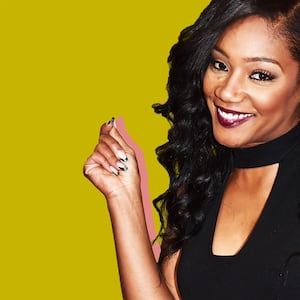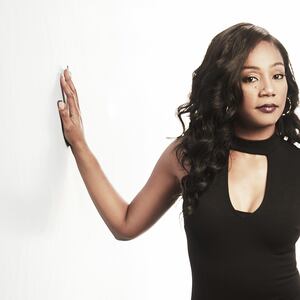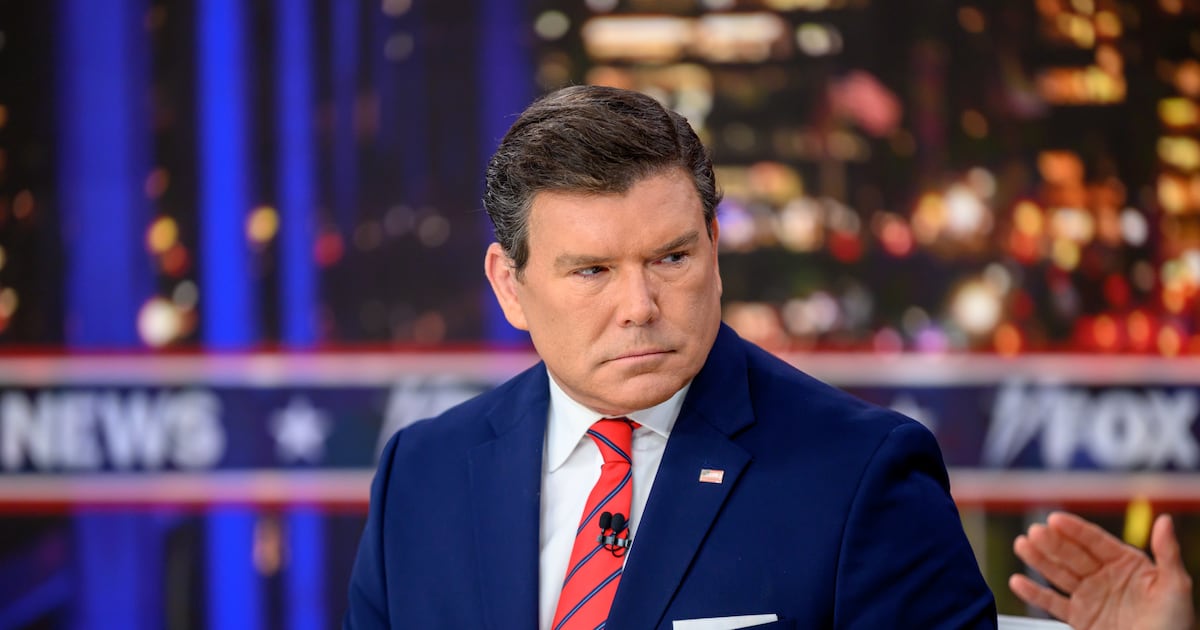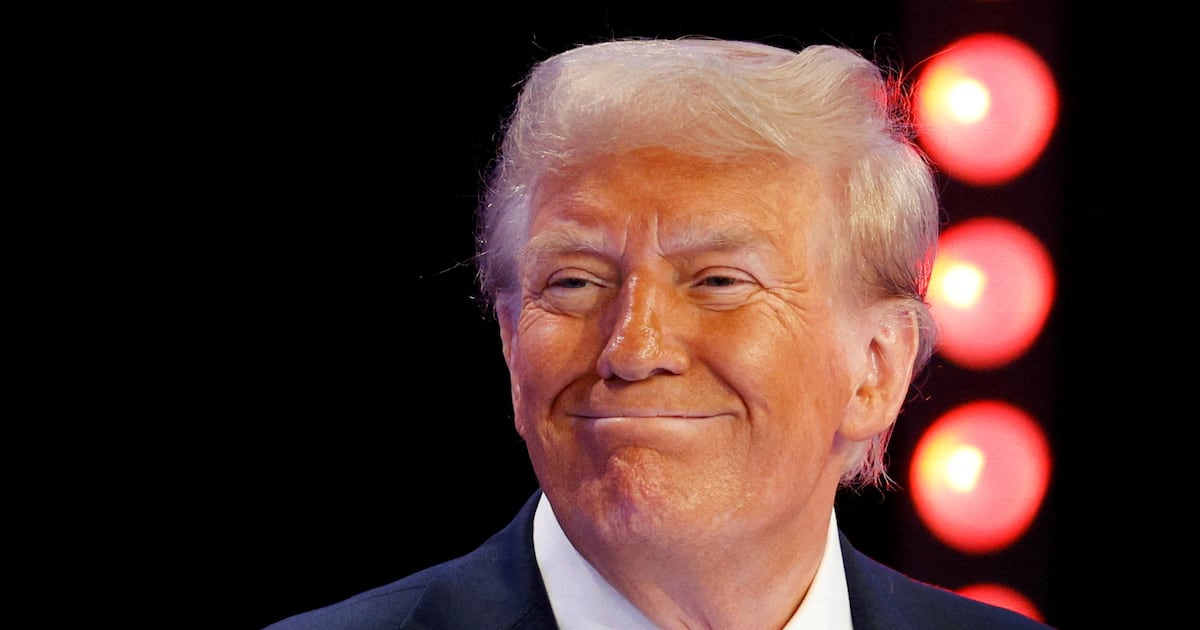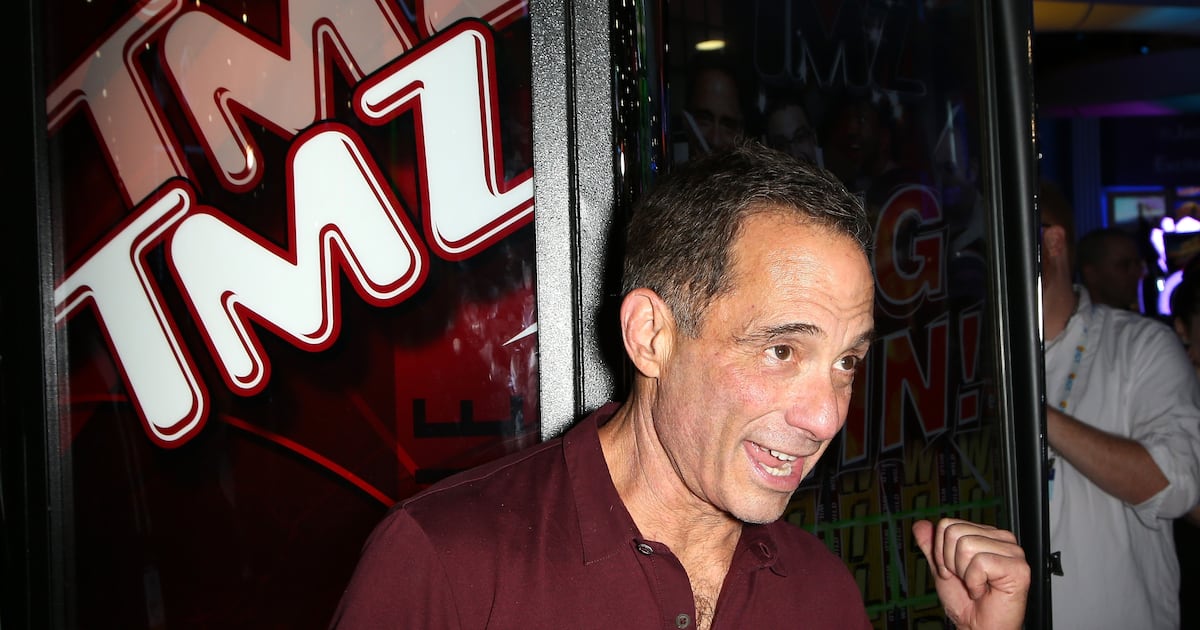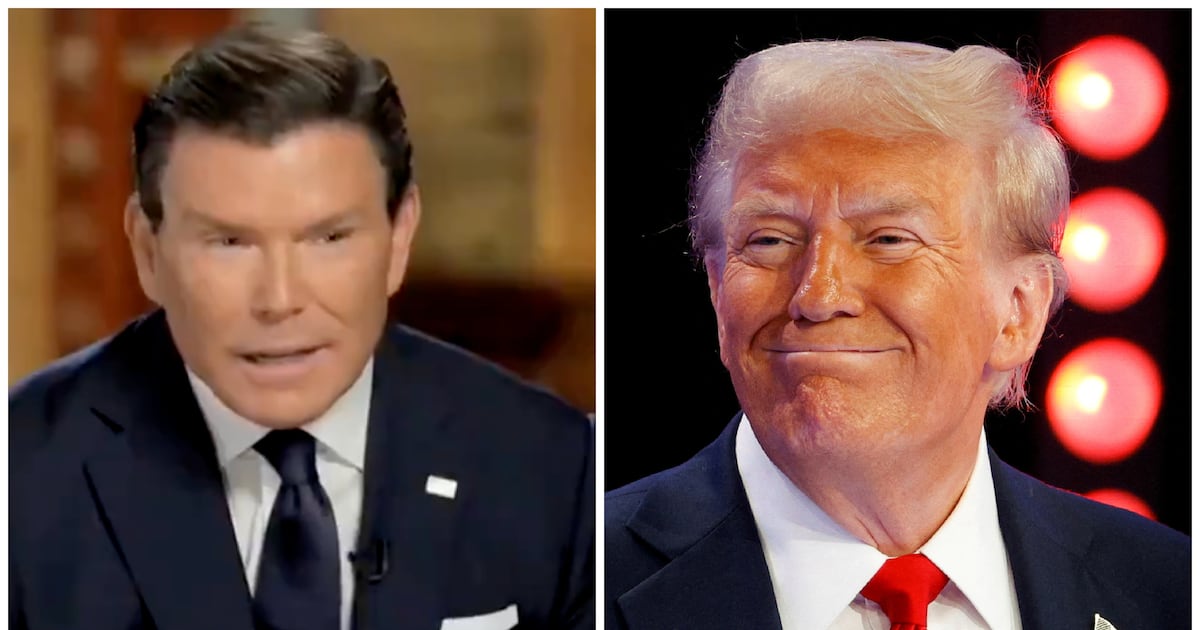Sometimes you just have one of those nights.
Tiffany Haddish’s disastrous and immediately viral New Year’s Eve show in Miami became the talk of social media for a full day after footage of the performance hit Twitter and Instagram. Addressing the criticism herself, Haddish apologetically acknowledged the bad stand-up show at the James L. Knight Center that reportedly led to audience walkouts. “Yes this happened,” she tweeted. “I wish it was better Miami. I prayed on it and I have a strong feeling this will never [happen] again.”
From viral videos and audience members’ tweets, it was clear that Haddish went onstage unprepared. “She wasn’t funny, it was hard to watch. Her jokes bombed, started asking people in the front row if they had questions. Then she said people not good on their job everyday,” tweeted one fan, as another gleefully posted Haddish’s onstage flameout and injected himself into the show as she started talking to the audience. “I went to go see if @TiffanyHaddish was actually funny. I ended up doing this,” he mockingly shared. “Conclusion: She is not funny. Horrible show. In her defense, she said she was having a rough night. She didn’t have to be up there. She ended up inviting me up on stage to tell jokes.”
ADVERTISEMENT
Bombing is one of the pitfalls of stand-up comedy—even once you’ve become a big Hollywood name. It happens. But some noted a giddiness to the ongoing commentary—as if there are more than a few people who really want Tiffany Haddish to fail.
To be certain, there have been drones of anti-Haddish sentiment on social media and beyond. Fellow comedy star Katt Williams prompted a surly comeback from Kevin Hart after Williams referenced Haddish’s success with chagrin during a radio interview. “She’s been doing comedy since she was 16,” Williams said in his appearance on “Frank and Wanda In the Morning” on Atlanta’s V-103 back in September. “You can’t tell me your favorite Tiffany Haddish joke. Why? Because she ain’t done a tour yet. She ain’t done a special. She has not proven the ability to tell jokes back-to-back for an hour to nobody.”
And there was the criticism of the Girls Trip star after her response to being asked a question about furthering diversity in Hollywood while backstage at the Emmys. "Girl, no, I don't know how to do that," Haddish said at the time. "I didn't go to college for that...If you was asking me how to structure a joke, I could help you with that part. But what you talking about right now, I don't know. I don't know. All I know is how to do my job. That's somebody else's job, I don't know how to do that." The commentary on Haddish “sidestepping” that question was swift and sometimes scathing.
Predictably, social media was flooded with finger-wagging—but tweets like “Ugh, just because you’re from the hood [doesn’t] mean you [don’t] have any common sense” and “Tiffany Haddish isn’t tired of fulfilling Hollywood’s ‘loud ignorant black woman’ narrative, yet? Oh,” spoke to a specific disdain for Haddish’s comedy and persona. In an industry where Martin Lawrence can “Wassssssup!” his way to legend status and late greats like Bernie Mac and Robin Harris are beloved, a Black woman who doesn’t mute or code-switch while daring to be silly has to navigate a minefield of race, gender and class issues. Where Black men are “real” and white people are “folksy,” Black women who become superstars but don’t buff that vernacular enough are likely to face criticism that they are performing “ghetto” caricatures and all that evokes. And it doesn’t take very much to provoke those critics; Beyoncé’s Houston drawl led to barbs about her intelligence for years; Bill Cosby once insulted Wanda Sykes on live television during the 2003 Emmys to mock how she talked.
Those tweets revealed how so many view Haddish and why her success has become polarizing. The backlash isn’t unique to her, but it’s telling that it has happened so quickly to a Black woman who is in rare territory for Black female comics. There were just as many rushing to defend Haddish against the derision, intimating that she’s not obligated to answer for Hollywood inadequacy or be a spokeswoman for anything and going to bat for Haddish’s comedy bonafides against those who believe she hasn’t paid her dues before becoming a comedy “it girl.” But those defenses don’t always address the proverbial elephant in the room.
It’s not unusual for Black comedy to be picked apart under the scrutiny of a respectability microscope. And historically, even some of the most venerated names in comedy have had to bear that scorn. Upon the end of Martin Lawrence’s beloved 1997 FOX sitcom, Greg Braxton of the Los Angeles Times wrote about how that show’s appeal belied waves of derision.
“But Martin was also continually haunted by a persistent cloud of intense anger and criticism from African American leaders, entertainers and others who denounced the humor and the characters as racially offensive and stereotypical,” stated Braxton. “Much of the controversy stemmed from some of the outrageous characters Lawrence played, including Sheneneh, the man-hungry next-door neighbor (for which he dressed in drag, with heavy makeup and an exaggerated rear end); Momma Payne, Martin’s imposing mother; and Jerome, the street-slick friend with particularly bad dental hygiene.”
Tyler Perry’s mid-2000s breakthrough film Diary of a Mad Black Woman made him one of the most successful—and self-mythologized—figures in Hollywood. But his hit Madea comedies and then-popular TBS sitcoms like House of Payne also made him a target of “buffoonery” criticism from figures like Spike Lee. It is an ongoing question for Black comedy and audiences, but one that only exists because of the racism that comedy is asked to navigate. No one gets to decide the voice of Black comedy because there is no singular voice. Everyone seems to get that, and yet the conversation so often centers on simply whether or not this particular comedian is funny to you. When a comic doesn’t make you laugh—but everyone else around you is cackling hysterically, you can feel obligated to rationalize the disconnect. Especially when you’re Black watching lots of white people laugh at someone you don’t find particularly funny.
Saturday Night Live’s track record with Black comedy is famously lacking—but it’s not just in how decidedly white the show’s cast has historically been. There’s also a sense that its few Black voices have more often represented what white audiences find funny. If you’re talking ’90s comedy, the hip-hop generation is going to mention In Living Color characters before Saturday Night Live’s, a show that never spoke to or for that audience. The voice matters, and so does who is laughing, but Black comedians can’t be expected to not be themselves depending on who’s laughing. So who gets to decide the most “authentic” voice for Black comedy? None of us do. And we all do. As is the case with all Black art, it can’t remain beholden to white perceptions—even as Black artists remain vigilant against white manipulation of it.
Tiffany Haddish’s success is hers and she’s earned it. Chris Tucker went from Def Comedy Jam up-and-comer to breakout Friday star to one of the biggest names in Hollywood in five years. Eddie Murphy was only 19 when he became a cast member on SNL and was only on that show for two years before landing a starring role in 48 Hrs, his film debut. Tiffany Haddish is a big star now, and that comes with a spotlight glare and a scrutinizing microscope. Whether she’s your kind of comedy of not, remember that preference shouldn’t determine who and how we indict—and respectability shouldn’t guide commentary. Haddish’s regrettable New Year’s Eve wasn’t that big a deal and her career is doing just fine. It should be asked why so many needed for her bad show to be more than just that.
Read it at

